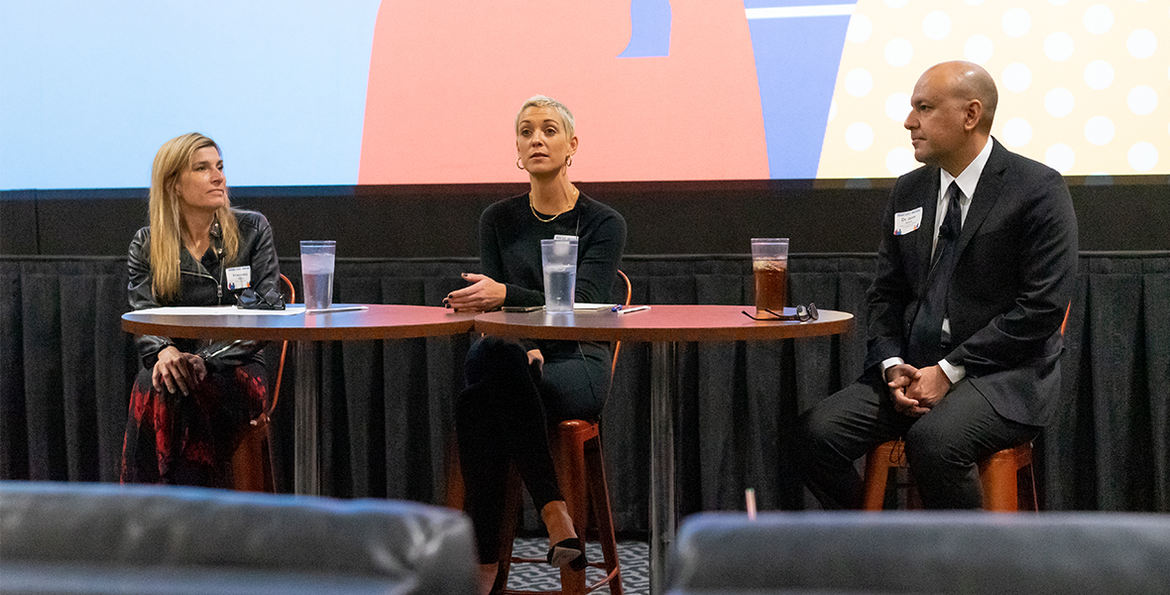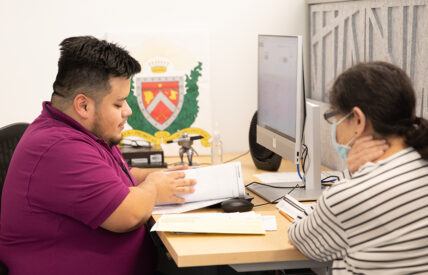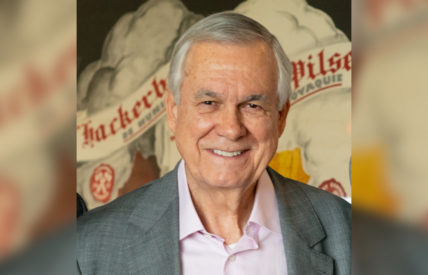
Wage disparity for women and women of color in San Antonio continues to be one of the most critical issues facing our community. Presented by United Way of San Antonio and Bexar County for members of Women United and Emerging Leaders, “Equal Pay for All: A Pay Equity Conversation” focused on wage disparity in our city. “Equal Pay for All” featured a lively dialogue about the realities of the wage gap with an engaged audience of San Antonio’s brightest professionals. Speakers included community leaders like Mayerland Harris, Francesca Rattray, Kara Allen, and Jason Aleman. Kara Allen, Chief Impact Officer of Spurs Sports and Entertainment, believes that the landmark settlement between U.S. women’s soccer players and the U.S. Soccer Federation over unequal pay is a great entry point into a wider dialogue about wage disparity.
“It is as important for us to have this conversation as it is important for us to understand this story,” Allen said. “It might not be the most fun dinner table conversation but imagine you’re out with a good friend and you just shared this story. You don’t actually have to say a whole lot more. The story speaks for itself.”
Promoting a dialogue about the gender and race wage gap is important. Many people are not aware of the issue even today. Research by Lean In and SurveyMonkey shows that one in three U.S. adults are unaware of the gender wage pay gap. Their research also found that men are nearly twice as likely as women to think that a wage gap between men and women does not exist. To combat the gender and race wage gap, more people must be made aware of it. Unfortunately, the wage gap persists in San Antonio. On average:
- Women of color earn $0.29 less than white non-Hispanic women per dollar
- Compared to white non-Hispanic men, Black women in San Antonio earn $0.72 per dollar
- Compared to white non-Hispanic men, Latina women in San Antonio will earn $0.61 per dollar
Francesca Rattray, CEO of YWCA San Antonio, says that organizations must take initiative to avoid practices that perpetuate behaviors that led to uneven pay.
“We believe that there is room for policy change and best practices,” Rattray said. “Companies can do an internal salary audit. They can do an audit of their c-suite to see if they have women and women of color in executive-level roles.”

Mayerland Harris, Group Vice President of Talent for H-E-B, stressed that there must be a commitment to pay equity during the hiring process.
“I think it is important to think about as we are bringing people into the organization that it is not about how much they were making before or even what their expectations are,” Mayerland said. “It’s not about what it will take to get someone. It is about what is fair and what is equitable.”
What can we each do to combat wage disparity? Our panelists suggest educating yourself on the history and data behind wage disparity so that you can educate others, making equity for all a priority in both your professional and personal lives, and creating space for others to display their authentic selves so that honest conversations can take place.
United Way of San Antonio and Bexar County is committed to reducing these wage gaps and is investing $3 million to combat wage disparity for women of color in San Antonio. We can unite as a community to create a more equitable future for San Antonio women and women of color if we do the difficult work of unlearning these problematic behaviors today.
|
Categories: Uncategorized |







